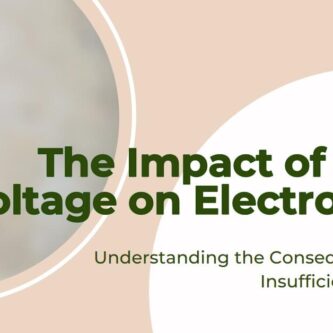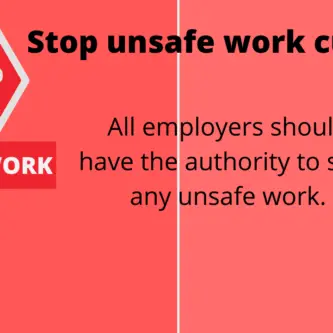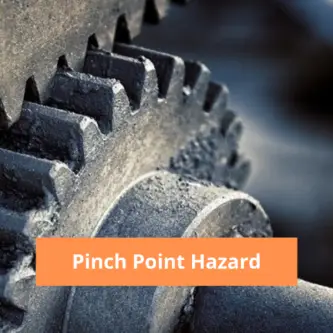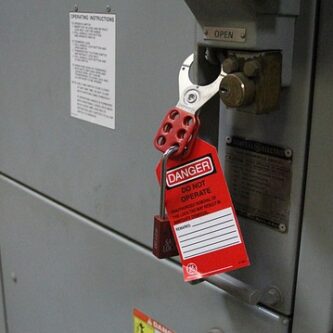A short circuit occurs when an electrical circuit is suddenly diverted from its intended path, causing a surge of electricity to flow through unintended channels.
Short circuits can happen for a variety of reasons and can have serious consequences, including fires, explosions, and electrocution.
In this article, we will explore the causes of short circuits and why they are so dangerous.
Causes of Short Circuits
There are several reasons why a short circuit may occur, including:
- Worn or damaged insulation: When the insulation around wires becomes worn or damaged, the wires can come into contact with each other and cause a short circuit.
- Overloaded circuits: If too many electrical devices are connected to a single circuit, it can overload the circuit and cause a short circuit.
- Faulty appliances: If an electrical appliance has a fault, such as a damaged cord or a broken component, it can cause a short circuit.
- Water damage: Water can cause electrical shorts if it comes into contact with electrical wiring or components.
- Improper wiring: If wiring is done incorrectly, it can cause a short circuit.
Risks of Short Circuits
Short circuits can be extremely dangerous because they can cause electrical fires, explosions, and electrocution.
When a short circuit occurs, a surge of electrical current flows through the wires, generating heat and potentially igniting nearby materials. This can cause fires that can quickly spread and cause extensive damage to homes and buildings.
In addition, short circuits can cause explosions if they occur in areas with flammable gases or liquids.
Short circuits also pose a risk of electrocution, especially if someone comes into contact with the electrical current. Electrical shocks can cause serious injury or even death, depending on the amount of current and the duration of the shock.
Check out my comprehensive article on my other site What Is Electrical Short Circuit & Why Is It Dangerous?
Preventing Short Circuits
Short circuits can be prevented by taking certain precautions, such as:
- Regularly inspecting electrical wiring and appliances to ensure they are in good condition.
- Avoiding overloading circuits by limiting the number of electrical devices that are connected to a single circuit.
- Keeping electrical devices away from water sources and avoiding using them in damp or wet conditions.
- Ensuring that wiring is done correctly by hiring a qualified electrician.
What to Do If a Short Circuit Occurs
If you suspect that a short circuit has occurred, it is important to take immediate action to prevent a potential disaster. Here are some steps you can take:
- Turn off the power: If you can do so safely, turn off the power to the affected area to prevent further damage or injury.
- Unplug electrical devices: If possible, unplug any electrical devices that may be causing the short circuit.
- Call an electrician: If you are unable to determine the cause of the short circuit or if you are unsure how to safely address the situation, call a qualified electrician.
- Evacuate the area: If there is a risk of fire or explosion, evacuate the area immediately and call the fire department.
Conclusion
Short circuits are a serious risk that can lead to fires, explosions, and electrocution. By understanding the causes of short circuits and taking appropriate precautions, you can help prevent these dangerous situations from occurring.
If you suspect a short circuit has occurred, take immediate action to address the situation and avoid potential disaster.
here’s a table summarizing the causes, risks, and preventions of short circuits:
| Causes of Short Circuits | Risks of Short Circuits | Preventions of Short Circuits |
|---|---|---|
| Worn or damaged insulation | Electrical fires | Regularly inspect electrical wiring and appliances to ensure they are in good condition. |
| Overloaded circuits | Explosions in areas with flammable gases or liquids | Avoid overloading circuits by limiting the number of electrical devices connected to a single circuit. |
| Faulty appliances | Electrocution | Keep electrical devices away from water sources and avoid using them in damp or wet conditions. |
| Water damage | Serious injury or death | Ensure that wiring is done correctly by hiring a qualified electrician. |
| Improper wiring | Property damage | Install ground fault circuit interrupters (GFCIs) in areas with water sources, such as bathrooms and kitchens. |
It’s important to note that these preventions are not exhaustive and that taking precautions such as turning off the power before inspecting or repairing electrical devices is also critical to preventing short circuits.
you work With Electricity! Don’t leave empty-handed!
Looking to stay ahead of the game in the world of electrical engineering? Subscribe to my YouTube channel and gain access to exclusive content you won’t find anywhere else!
The staff I recommend (Amazon Affiliate Links to products I believe are high quality):
- Economy 120 Volt/60Hz AC Power Source – Step-Down Voltage & Frequency Converters 1800W
- UNI-T Digital Multimeter Tester UT139C
- 50-Amp Extension Cord for RV “100ft”
- Voltage Stabilizer 110/220v
- Hair Dryer “best selling“
- TOSHIBA EM131A5C-BS Countertop Microwave Ovens
Disclaimer: This contains affiliate links to Amazon products. I may earn a commission for purchases made through these links.





